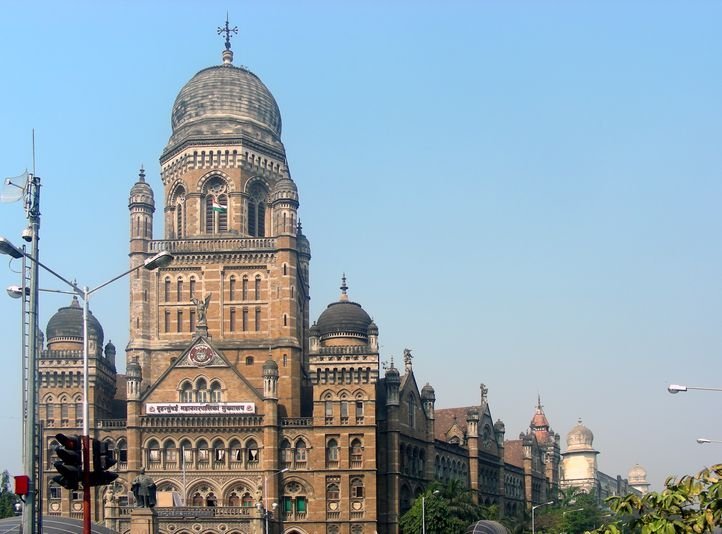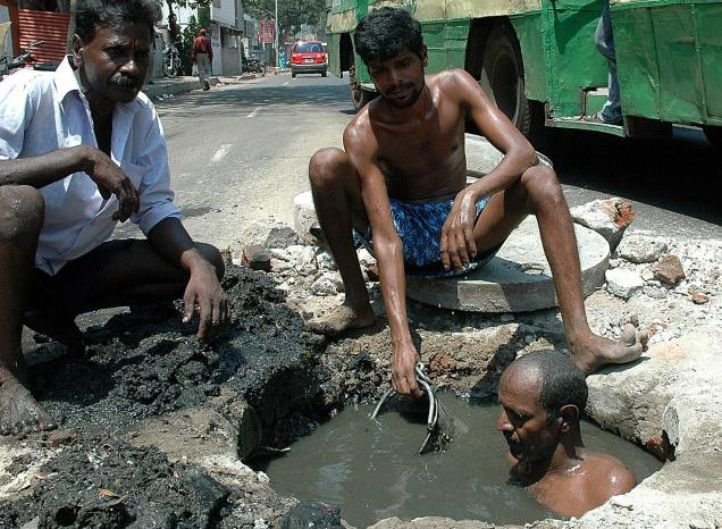“Cultivation of mind should be the ultimate aim of human existence,” Dr BR Ambedkar.
BR Ambedkar was the ultimate campaigner for the rights of Dalits in Indian society. It is to him that most Dalits look up to, and it is to him that so many take inspiration from. Unfortunately for India, the caste system has yet to unhook its cancerous hooks from the social-political system. It is because of this that so many people who belong to that caste still suffer the same injustices they did several decades ago. One such person is 36-year-old Sunil Yadav.
Yadav is from Mumbai and fervently believes in the power of education. He has four degrees including a masters degree from the prestigious Tata Institute of Social Sciences (TISS), he is currently pursuing an MPhil – an advanced postgraduate degree.
Yadav is also a manual scavenger. A manual scavenger is someone who cleans human and animal waste from buckets and pits, it is usually a task performed by members of the lowest caste Hinduism-Dalits, also known as untouchables.

A new course, a new battle
Despite his many degrees, Yadav’s current employers – the Municipal Corporation of Greater Mumbai – have refused to promote him.
His current lifestyle includes removing garbage from the city at night and studying during the day. According to government rules, all employees are allowed to take leaves in order to study, however, according to Yadav, his latest request for a leave was denied.
” One of the officials told me that if he gives me a chance, he will have to give everyone a chance. He asked me what I would get out of studying. The administration treats us like slaves,” Yadav said (as quoted by BBC ).
Every new course Yadav sits for brings forth a new set of problems for getting leave. To get study leave for his masters, Yadav had to protest for a number of days before the authorities agreed.

Mumbai’s municipality is the richest in the country. It employs over 28,000 conservancy workers and about 15,000 contractual labourers.
Manual scavenging is banned in India since 2013, however, it still exists around the country. Activists believe tens of thousands of people are involved in this demeaning work, which makes them vulnerable to prejudice and abuse.
The guidelines of the Prohibition of Employment as Manual Scavengers and their Rehabilitation Act 2013 is often not implemented properly in many states. To stay within the law, the municipalities often make slight changes to the nature of the work. For instance, the law describes a manual scavenger as one who uses his bare hands to remove waste. By giving the workers a spade and bucket the municipality is evading the law.

Keep it in the family
In many ways, Sunil Yadav was born to become a manual scavenger. His father was a scavenger and thus the mantle fell on him when he came of age, as it often does in these communities.
Many other educated workers are forced to remain in this field as they are effectively not allowed to do anything else.
They do not get promotions because of the class and caste they were born into. For instance in 2014 Yadav applied for the job of Labour Welfare Officer, and even with his many degrees and years of experience in the field, he was turned down on technicalities. ” I do not understand why they can’t promote us to jobs that we deserve,” he said.
Yadav is hardly a unique case. When Pramod Jhadav, who recently completed his masters degree in political science, tried looking for jobs in higher level positions, he was continuously turned down.

” The word scavenger on my identity card and salary slip is the start of exploitation. It is casteist. The administration is equating us to vultures, who are nature’s scavengers,” he said.
So if the conditions they work in are so bad and if they are far more qualified for what they do, why not look elsewhere?
The problem here is that almost all those who work for the municipality live in government housing. If they were to leave their government jobs they would also have to leave their homes. And for those living in Mumbai this seems impossible, the real estate is so expensive in that city that most of them will be left homeless.
At the same time, Dalit thinker and political commentator Chandra Bhan Prasad says, “Occupation is central to the caste system. If they continue to work in the municipality, they are just internalising slavery. They should separate the occupation from the caste, and desert the profession. Only that will give the system a jolt.”
Read more:

















